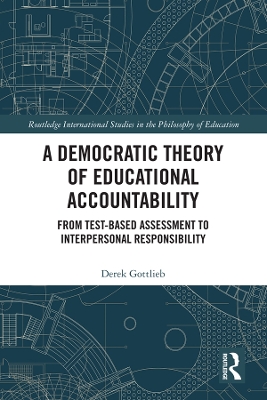Routledge International Studies in the Philosophy of Education
2 total works
In an effort to address the problems confronting the American education system, the Obama administration has issued structural and systematic reforms such as Race to the Top. These initiatives introduce new statistics and accountability systems to gauge what constitutes "good" teaching, both from an administrative standpoint and the perspective of teacher training programs. This volume offers a direct critique of this approach, concluding that it does not respond adequately to the issues of education reform but rather raises new problems and actively stymies progress.
The author argues that at the heart of the confusion lies a misguided and rationalistic view of teaching and learning. He draws on the philosophical strategies of Ludwig Wittgenstein to break down the guiding assumptions of Race to the Top, allowing both the positive and the negative aspects of the policies to be heard. The author then proposes a different view of teaching and learning which considers how to effectively address the problems Race to the Top seeks to confront.
This insightful text offers a detailed account of the historical development of educational accountability in the US public education system. In doing so, it diagnoses the unforeseen consequences arising from a centralized, technocratic implementation of the concept, and calls for a radical re-thinking in how our democratic responsibilities translate into the provision, measurement, and conceptualization of education.
Drawing from the works of scholars including Stanley Cavell, Linda Zerilli, Daniel Koretz, and James Scott, A Democratic Theory of Educational Accountability illustrates the way in which "educational accountability" has foregrounded centralized measures of "success" to the point of perversity. Through nuanced political theory and philosophical arguments, the text demonstrates how test-based measures have rendered the holistic aims of education futile, resulting in an education system of "box-checking" and "rule-following". Ultimately calling for a new imagination of how our democratic responsibilities are enacted in schools and communities, Gottlieb illustrates how accountability can be used for good, to ensure that our schools nurture talent, cultivate social mobility, and engage with local needs.
This text will be of great interest to graduate and postgraduate students, researchers, academics, and libraries in the field of philosophy of education, educational policy, assessment & testing and democratic theory.

